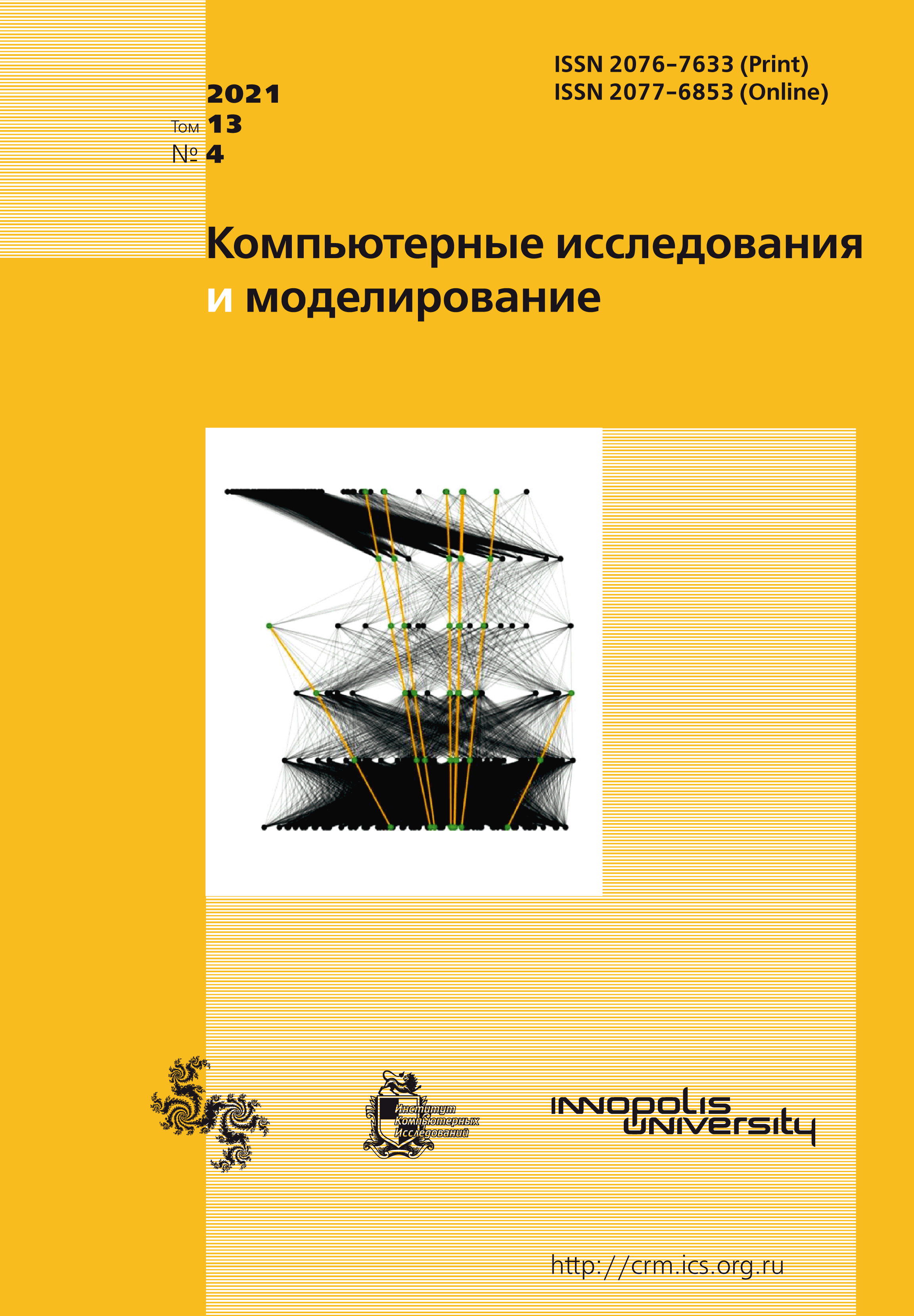All issues
- 2025 Vol. 17
- 2024 Vol. 16
- 2023 Vol. 15
- 2022 Vol. 14
- 2021 Vol. 13
- 2020 Vol. 12
- 2019 Vol. 11
- 2018 Vol. 10
- 2017 Vol. 9
- 2016 Vol. 8
- 2015 Vol. 7
- 2014 Vol. 6
- 2013 Vol. 5
- 2012 Vol. 4
- 2011 Vol. 3
- 2010 Vol. 2
- 2009 Vol. 1
Mathematical methods for stabilizing the structure of social systems under external disturbances
 pdf (414K)
pdf (414K)
The article considers a bilinear model of the influence of external disturbances on the stability of the structure of social systems. Approaches to the third-party stabilization of the initial system consisting of two groups are investigated — by reducing the initial system to a linear system with uncertain parameters and using the results of the theory of linear dynamic games with a quadratic criterion. The influence of the coefficients of the proposed model of the social system and the control parameters on the quality of the system stabilization is analyzed with the help of computer experiments. It is shown that the use of a minimax strategy by a third party in the form of feedback control leads to a relatively close convergence of the population of the second group (excited by external influences) to an acceptable level, even with unfavorable periodic dynamic perturbations.
The influence of one of the key coefficients in the criterion $(\varepsilon)$ used to compensate for the effects of external disturbances (the latter are present in the linear model in the form of uncertainty) on the quality of system stabilization is investigated. Using Z-transform, it is shown that a decrease in the coefficient $\varepsilon$ should lead to an increase in the values of the sum of the squares of the control. The computer calculations carried out in the article also show that the improvement of the convergence of the system structure to the equilibrium level with a decrease in this coefficient is achieved due to sharp changes in control in the initial period, which may induce the transition of some members of the quiet group to the second, excited group.
The article also examines the influence of the values of the model coefficients that characterize the level of social tension on the quality of management. Calculations show that an increase in the level of social tension (all other things being equal) leads to the need for a significant increase in the third party's stabilizing efforts, as well as the value of control at the transition period.
The results of the statistical modeling carried out in the article show that the calculated feedback controls successfully compensate for random disturbances on the social system (both in the form of «white» noise, and of autocorrelated disturbances).
Copyright © 2021 Varshavsky L.E.
Indexed in Scopus
Full-text version of the journal is also available on the web site of the scientific electronic library eLIBRARY.RU
The journal is included in the Russian Science Citation Index
The journal is included in the RSCI
International Interdisciplinary Conference "Mathematics. Computing. Education"






